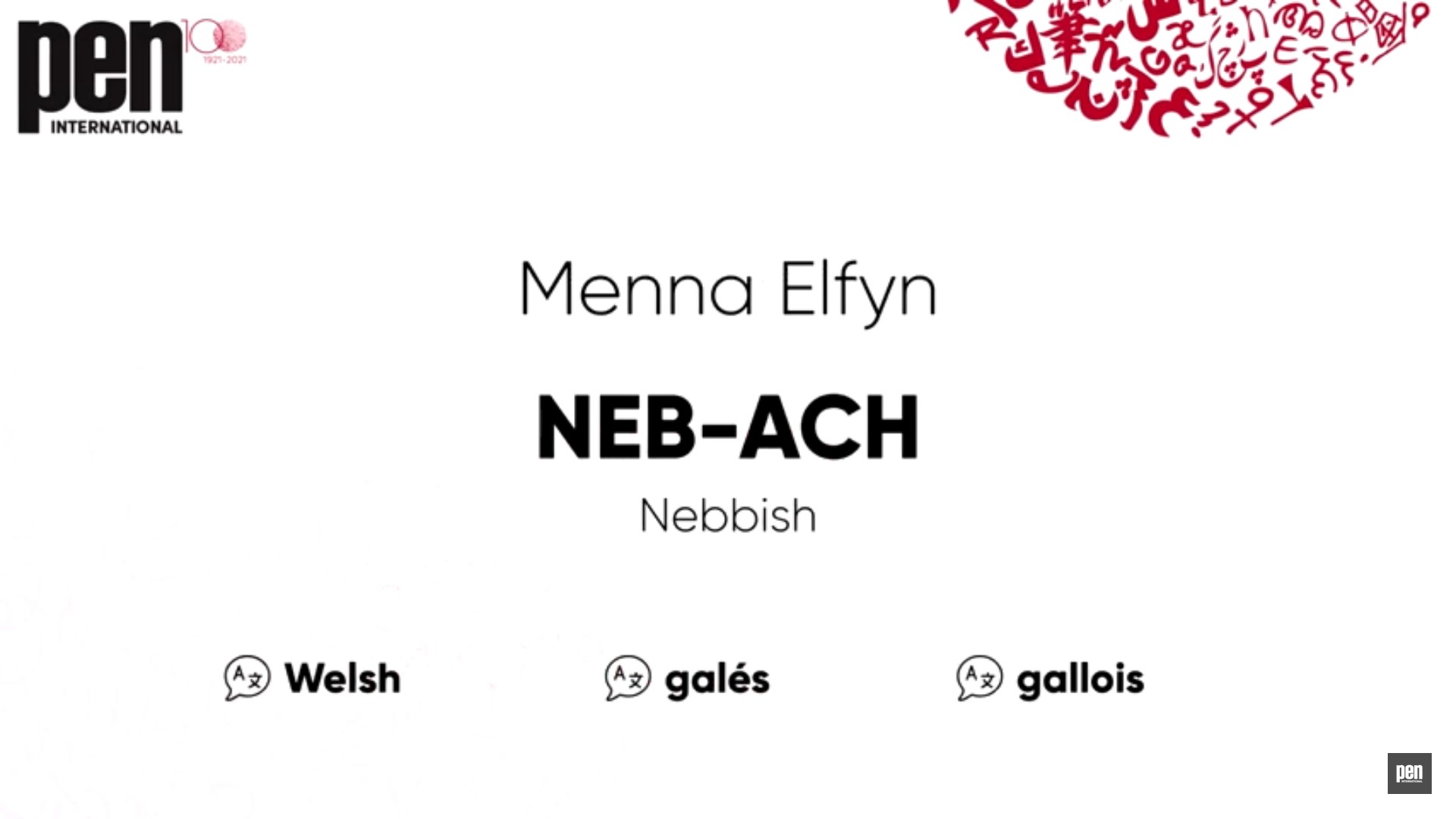Llywydd PEN Cymru, Menna Elfyn, yn darllen ei cherdd, ‘Nebach’, ar gyfer Diwrnod Rhyngwladol Mamiaith 2021.
Wales PEN Cymru’s president, Menna Elfyn, reads her poem, ‘Nebach’, for International Mother Language Day 2021. See English translation below.
Nebbish – MENNA ELFYN
“So many of us have stood up for the marginalized, but never expected to be here ourselves” – Barbara Kingsolver
What I learned early on : bach = small is small, smaller, smallest;
but who is the smallest of us all?
We thought it was us, the Welsh
‘appendage’, some relic or other
of England – sometimes quipped as Great Britain,
although miniscule on any map.
Welsh is the only language you learn
to be able to talk to fewer people,
said one spin doctor or the journalist:
‘this useless language’, though she could not sound
even a syllable from her small world.
Bigger, bigger, bigger is the curse that we hear.
These days, the small and smaller
are afoot, and we are with them
the smallest ones, dregs
whose hiraeth for hearth
wants a roof, eaves even, and blessings;
who crave, though they be small,
a feast, a dwelling, a plenitude ;
and we, like them, shy away
from those who sense the leaves on our lips.
After all, we Welsh were called strangers
once by our next door neighbours,
so we understand those on the move,
mumbling without the warmth of their mother tongue;
glasswort on a faraway beach
every shard hitting rock
before it falls in the cauldron of tides.
Until the great power reconfigure their dictionaries:
as the diminiutive people:
small, small, the smallest nebbish:
a nobody, nebach—no lineage,
smaller than small
poor thing, say some as they bid adieu
to the whisper of the tiniest tribes and nations.
Before slipping back to their huge world,
larger than ever,ever, ever.
- Nebbish—Yiddish for poor thing; in Welsh neb- means nobody and ‘ach’ lineage or ‘relation’.
- Bach in Welsh is also used as a term for ‘ dear’.
- The ‘ Welsh’ is a name bestowed on us by the English and derived from the Anglo –Saxon wilisc and morphed into Welsh—meaning foreigner / stranger.

